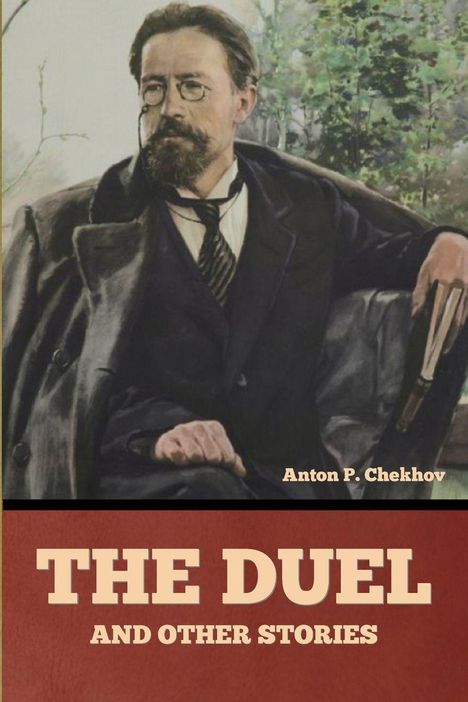Anton Pavlovich Chekhov: The Duel and Other Stories, Kartoniert / Broschiert
The Duel and Other Stories
(soweit verfügbar beim Lieferanten)
- Verlag:
- Bibliotech Press, 08/2025
- Einband:
- Kartoniert / Broschiert
- Sprache:
- Englisch
- ISBN-13:
- 9798897732241
- Artikelnummer:
- 12414443
- Umfang:
- 138 Seiten
- Gewicht:
- 236 g
- Maße:
- 229 x 152 mm
- Stärke:
- 8 mm
- Erscheinungstermin:
- 17.8.2025
- Hinweis
-
Achtung: Artikel ist nicht in deutscher Sprache!
Weitere Ausgaben von The Duel and Other Stories |
Preis |
|---|
Klappentext
The Duel and Other Stories by Anton Pavlovich Chekhov is a collection of short stories that delve into themes of morality, human behavior, and the complexity of relationships. Chekhov, one of Russia's greatest literary figures, is known for his masterful short stories and plays that often depict ordinary lives with psychological depth and subtle social critique.
The Duel follows the story of Laevsky, a disillusioned government clerk living in a remote seaside town with a woman named Nadyezhda Fyodorovna, with whom he ran away from her husband. Over time, Laevsky becomes increasingly weary of both his mistress and his life. His moral cowardice, indecisiveness, and hypocrisy come under scrutiny, especially when juxtaposed with the character of Von Koren, a zoologist who believes in social Darwinism and views Laevsky as a degenerate who should not be allowed to breed. Tension between the two men culminates in a duel, forcing a reckoning with their values and choices.
The stories included are:
Excellent People Mire Neighbours At Home Expensive Lessons The Princess The Chemist's Wife
About the Author
Anton Pavlovich Chekhov (29 January 1860 - 15 July 1904) was a Russian playwright and short-story writer, widely considered to be one of the greatest writers of all time. His career as a playwright produced four classics, and his best short stories are held in high esteem by writers and critics. Along with Henrik Ibsen and August Strindberg, Chekhov is often referred to as one of the three seminal figures in the birth of early modernism in the theatre. Chekhov was a physician by profession. "Medicine is my lawful wife," he once said, "and literature is my mistress."
Chekhov renounced the theatre after the reception of The Seagull in 1896, but the play was revived to acclaim in 1898 by Konstantin Stanislavski's Moscow Art Theatre, which subsequently also produced Chekhov's Uncle Vanya and premiered his last two plays, Three Sisters and The Cherry Orchard. These four works present a challenge to the acting ensemble as well as to audiences, because in place of conventional action Chekhov offers a "theatre of mood" and a "submerged life in the text." The plays that Chekhov wrote were not complex, and created a somewhat haunting atmosphere for the audience.
Chekhov began writing stories to earn money, but as his artistic ambition grew, he made formal innovations that influenced the evolution of the modern short story. He made no apologies for the difficulties this posed to readers, insisting that the role of an artist was to ask questions, not to answer them. (wikipedia. org)


